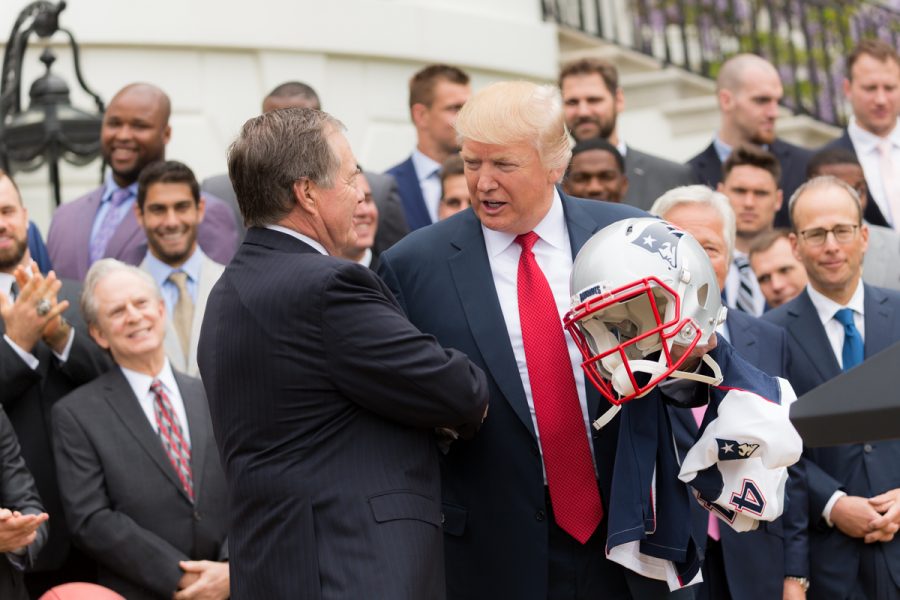A growing discord
The idea of protesting has been a cultural necessity since the times of our ancestors. From the Boston Tea Party to the American Revolution to the Civil Rights Movement to the “#metoo” movement, the ability and urge to stay true to one’s beliefs has led to some of the strongest decisions in the nation’s history. This idea has found its way into the spotlight in the case of football.
Stories of Colin Kaepernick have flooded the internet since he first decided to kneel during the National Anthem on Sept. 1, 2016. Both critics and supporters of his actions are putting their views to light this very day.
“We have never seen anything like this before in the NFL,” said Alvin Tillery, who runs Northwestern University’s Center for the Study of Diversity and Democracy, to NBC. “Despite their wealth and stardom, most of these athletes are still deeply connected to the African-American community by family ties, churches and cultural connections.”
Since the events regarding Kaepernick, the idea of protests have grown rampant throughout the NFL. Recently, the football player Malcolm Jenkins wore a T-shirt stating “Ca$h bail = poverty trap” during one of his games. Jenkins and his teammate Chris Long later released a video expanding on this theme of how the bail system was unfair to those who did not have the money to pay for bail.
“This is about equality and something bigger than ourselves, and bringing people together, and love and connectedness and equality and social justice, and putting a light on people who deserve to have the attention for their causes and their difficult situations that they’re in,” Aaron Rodgers, the Green Bay Packers quarterback, said to the NBC.
While other football players have used their fame to support ideals, it all goes back to Kaepernick’s taking the knee.
“We want people to be respectful of the national anthem,” NFL Commissioner Roger Goodell said to NBC. “We want people to stand and make sure they treat this moment in a respectful fashion.”
However, there are still those who support the overall decision to protest for something they believe in or or against something that goes they believe to be immoral or unethical.
“I’m gonna stand because that’s the way I feel about the flag — but I’m also 100 percent supportive of my teammates or any fellow players who are choosing not to,” Rodgers said to USA Today. “They have a battle for racial equality. That’s what they’re trying to get a conversation started around.”
Whether a football star plays just the game or decides to use the game in support of something greater than themselves is entirely up to them. However, it is still an issue that directly affects the NFL and the player.




